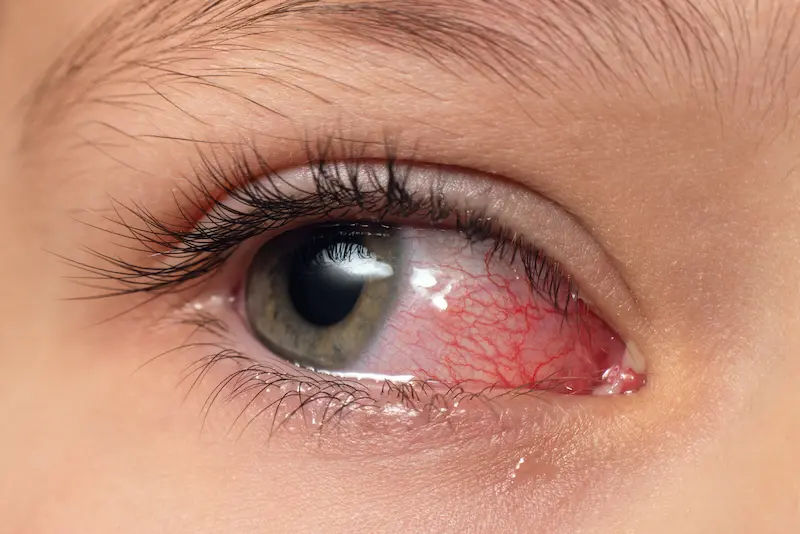Tagar in Ayurveda: Benefits, Uses, and Side Effects
Discover tagar benefits, traditional uses, and side effects. Learn how this Ayurvedic herb may support sleep and calm, plus safe use tips and who should avoid it.


Introduction
If you’ve heard about tagar and wondered whether it can help with sleep, stress, or digestion, you’re not alone. Tagar (Valeriana wallichii), also called Indian valerian or Sugandhbala, is a traditional Ayurvedic herb valued for its calming effects and support of restful sleep. Interest in tagar benefits has grown steadily as more people look for natural ways to ease everyday tension and improve overall well-being. This guide explains what tagar is, how it may work, its possible benefits, safe use, side effects, and important precautions—using the best available evidence while acknowledging where research remains limited.
Important note: Modern scientific research on tagar specifically is still limited. Most available studies examine a related species, Valeriana officinalis (European valerian), which is commonly used in Western herbal practice. Where appropriate, we draw on findings from valerian research while clearly highlighting the differences and limitations.
Consult a Top Ayurveda Doctor for Personalised Advice
What is Tagar (the Ayurvedic Herb Valeriana wallichii)?
- Botanical name: Valeriana wallichii
- Common names: Tagar, Tagara, Indian valerian, Sugandhbala
- Parts used: Root and rhizome
- Traditional use: In Ayurveda, tagar is used to relax the mind, support sleep, reduce restlessness, and ease digestive discomfort.
Tagar belongs to the same plant family as European valerian. Both possess aromatic roots and have been used for centuries as calming herbs. Despite their similarities, the chemical profile of each species can differ depending on the plant, environment, and method of preparation. As a result, their effects are not always identical. Choosing a reputable, high-quality product is essential, especially if using tagar for sleep or stress.
How Tagar Might Work?
Scientists believe valerian-type herbs may influence the body in several ways:
- Supporting the brain’s calming system (GABA signalling)
- Offering mild sedative and muscle-relaxing effects
- Providing soothing aromatic compounds that many people find naturally relaxing
However, the exact active ingredients and mechanisms remain unclear. The effects can vary significantly between species, growing conditions, extraction methods, and dosage. This makes it important to use tagar thoughtfully and consult a qualified practitioner if unsure about the right form or amount.
Tagar Benefits: What Ayurveda and Research Suggest
Below is a balanced overview of common reasons people use tagar. Remember: most modern research focuses on European valerian, not Valeriana wallichii. Evidence remains mixed overall.
1) Sleep Support and Insomnia
Traditional use:
- Ayurvedic practitioners have long used tagar to promote deeper, more restful sleep, especially when restlessness or an overactive mind makes it difficult to fall asleep.
What research shows (mostly valerian):
- Some studies suggest valerian may help improve the time it takes to fall asleep.
- Certain trials show mild improvements in sleep quality in adults.
- Other research finds little or no measurable benefit when compared with a placebo.
- Overall, valerian is generally considered safe for short-term use.
Takeaway: Tagar may help some individuals unwind before bed and ease into sleep more smoothly. However, it is not a guaranteed solution for insomnia. Good sleep habits—such as keeping a regular bedtime, reducing screen exposure, avoiding caffeine late in the day, and practising relaxation techniques—remain essential.
2) Stress and Mild Anxiety
Traditional use:
Tagar is traditionally used to soothe the mind, calm nervous tension, and support emotional balance.
What research shows (largely valerian):
- Some small studies indicate mild benefits for easing everyday stress or anxiety.
- Other trials find inconsistent results.
- Valerian-type herbs generally show a gentle calming effect without causing dependency.
Takeaway: Tagar may contribute to a sense of calm, but it should not replace professional care if anxiety affects daily life. Individuals with persistent or severe symptoms should speak with a healthcare provider.
3) Muscle Tension and Spasms
Traditional use:
Valerian-type herbs have been used historically to relax the muscles and reduce cramps or spasms.
What research shows:
- Limited small-scale studies suggest mild relaxing effects on muscles.
- Evidence is not strong enough to recommend tagar as a primary treatment.
Takeaway: Tagar may offer a gentle sense of physical relaxation, but more research is needed.
4) Digestive Comfort
Traditional use:
In Ayurveda, tagar is used to ease occasional bloating, gas, and digestive discomfort. Its calming properties are believed to help soothe the digestive system.
What research shows:
- Modern scientific evidence remains limited.
- Most digestive benefits derive from historical use rather than clinical trials.
Takeaway: Some people find tagar helpful for stomach comfort, but persistent digestive issues should always be assessed by a clinician to rule out underlying conditions.
5) Menstrual Comfort
Traditional use:
Tagar is occasionally used to support menstrual comfort and ease mild discomfort related to the menstrual cycle.
What research shows:
- Modern studies are limited and inconsistent.
- Evidence does not support relying solely on tagar for moderate or severe pain.
Takeaway: Traditional use exists, but women experiencing significant menstrual discomfort or irregularities should seek individualised medical advice.
How to Use Tagar Safely?
Tagar can be used in various ways:
Available forms of tagar are:
- Capsules or tablets: Standardised extracts providing consistent dosing.
- Powder (churna): Traditional form that can be mixed with warm water, milk, or honey.
- Tea or decoction: Made from dried root simmered in water.
- Tincture or liquid extract: Alcohol or glycerin-based preparation.
- Aromatic uses: The strong-smelling root may be added to baths or massage oils.
- Note: Tagar essential oil should never be ingested.
Dosing Guidance
There is no universal recommended dose for tagar (Valeriana wallichii). However, research on valerian (Valeriana officinalis) offers some guidance:
- As product strength varies widely:
- Start with the lowest possible dose
- Follow instructions on the product label
- Consult a qualified practitioner when using Ayurvedic formulations
Avoid combining tagar with sedatives or alcohol, and never exceed the recommended dose.
Potential Side Effects
Valerian-type herbs are usually well tolerated for short-term adult use. Possible side effects include:
- Drowsiness or daytime sleepiness
- Dizziness or light-headedness
- Headache
- Stomach upset or nausea
- Occasionally vivid dreams
Rare concerns:
- A very small number of cases of liver issues have been reported relating to valerian products.
- Although the link is unclear, discontinue use and seek medical help if you notice:
- Dark urine
- Yellowing of the skin or eyes
- Unusual fatigue
- Upper abdominal pain
Who Should Avoid Tagar or Use It with Medical Advice?
Tagar should be avoided if you belong to any of the below categories:
- Pregnant or breastfeeding individuals
- Children and adolescents
- People scheduled for surgery (stop at least two weeks before anaesthesia)
- Individuals with liver disease or heavy alcohol use
- Anyone taking sedatives, sleep medicines, or substances that slow breathing
- People with ongoing medical conditions—consult a clinician first
Drug and Substance Interactions
The interactions include:
Avoid combining tagar with:
- Alcohol
- Sedatives, sleep aids, and anti-anxiety medicines
- Opioid pain medicines
- Certain antihistamines cause drowsiness
- Muscle relaxants
- Other calming herbs or supplements (such as kava), unless advised by a clinician
If you take prescription medication, always check for interactions before using tagar.
Quality and Safety Tips When Buying an Ayurvedic Herb
The safety and quality tips include:
- Choose reputable brands that use third-party testing.
- Check the label for the botanical name (Valeriana wallichii) and extract information.
- Avoid products with undisclosed blends or unnecessary additives.
- Start with the lowest effective dose and monitor how your body responds.
- Store safely away from children and pets.
When to See a Healthcare Professional?
See healthcare professional in case of:
- Persistent insomnia, anxiety, or digestive symptoms
- Pregnancy, breastfeeding, or planning pregnancy
- Liver concerns or symptoms, such as jaundice or dark urine
- Using tagar alongside prescription medication
- Beeding surgery or procedures requiring anaesthesia
Practical Tips to Get the Most from Tagar
Some practical tips are:
- Combine tagar with healthy sleep habits and relaxation routines.
- Use it consistently at the same time each day during a trial period.
- Assess your response after 1–2 weeks.
- Stop if there is no noticeable benefit.
- Remember that natural remedies vary widely in effectiveness from person to person.
Final Word
Tagar has a long history of use in Ayurveda for calming the mind, easing tension, and supporting sleep. While modern research on its close relative valerian shows possible gentle benefits for relaxation and sleep quality, results remain inconsistent. If you choose to try tagar, prioritise high-quality products, start with a low dose, and use it alongside healthy habits that naturally support rest and well-being. Always seek personalised advice if you are pregnant, breastfeeding, taking medication, or managing long-term health conditions.
Consult a Top Ayurveda Doctor for Personalised Advice
Consult a Top Ayurveda Doctor for Personalised Advice

Dr. Anjan Das
Ayurveda Practitioner
8 Years • Ayurvedacharya ( B.A.M.S )
Dumdum
Vedhive Ayurveda Clinic, Dumdum

Dr. Rik Sadhukhan
Ayurveda Practitioner
8 Years • BAMS
Kolkata
Vedhive Ayurveda, Ballygunge, Kolkata

Dr. Shiv Prakash Singh
Ayurveda Practitioner
19 Years • BAMS
Kolkata
Vedhive Ayurveda College Street, Kolkata

Dr. Pepsy Jose
Panchakarma Practitioner
14 Years • BAMS, MD Ayurveda (Panchakarma)
Bengaluru
AYURRHYTHM HOLISTIC CLINIC AND PANCHAKARMA THERAPY, Bengaluru
Consult a Top Ayurveda Doctor for Personalised Advice

Dr. Anjan Das
Ayurveda Practitioner
8 Years • Ayurvedacharya ( B.A.M.S )
Dumdum
Vedhive Ayurveda Clinic, Dumdum

Dr. Rik Sadhukhan
Ayurveda Practitioner
8 Years • BAMS
Kolkata
Vedhive Ayurveda, Ballygunge, Kolkata

Dr. Shiv Prakash Singh
Ayurveda Practitioner
19 Years • BAMS
Kolkata
Vedhive Ayurveda College Street, Kolkata

Dr. Pepsy Jose
Panchakarma Practitioner
14 Years • BAMS, MD Ayurveda (Panchakarma)
Bengaluru
AYURRHYTHM HOLISTIC CLINIC AND PANCHAKARMA THERAPY, Bengaluru
More articles from General Medical Consultation
Frequently Asked Questions
What is tagar, and is it the same as valerian?
Tagar is Valeriana wallichii, an Ayurvedic herb known for calming and sleep-supporting effects. It is closely related to European valerian (Valeriana officinalis), but variations in composition mean results may differ. Research is stronger for European valerian.
Does tagar really help with sleep?
It may help some people fall asleep more easily or feel more relaxed at bedtime. Evidence from valerian research is mixed, and effects vary between individuals. Good sleep practices remain essential.
Can I take tagar every day?
Short-term use appears safe for most adults. Start with a low dose and reassess after a few weeks. Because long-term safety data are limited, speak with a healthcare professional if you plan to use it for longer.
Is tagar safe during pregnancy or breastfeeding?
There is insufficient evidence regarding safety. It is generally recommended to avoid tagar during pregnancy and breastfeeding unless advised otherwise by a clinician.
Can I combine tagar with melatonin or Ashwagandha?
Combining calming herbs or supplements may cause increased drowsiness. If you wish to use combinations, consult your clinician or an Ayurvedic practitioner, especially if you also take prescription medications.




